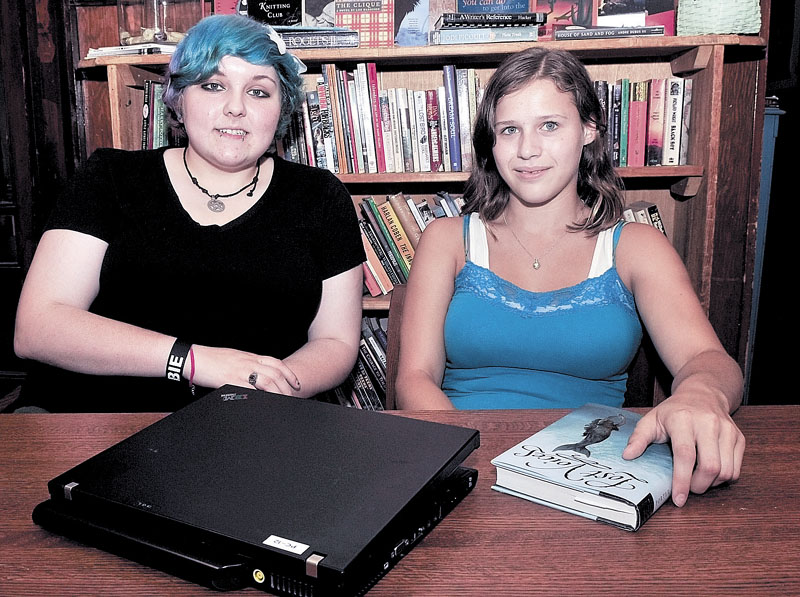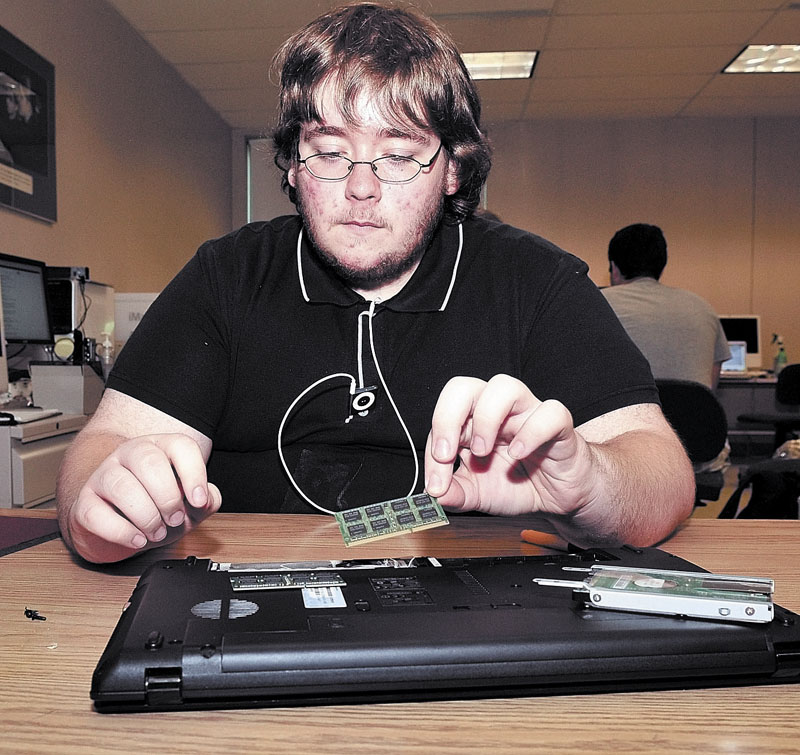FARMINGTON — Andrew Leonard credits his time in the Upward Bound program with helping him get into a good college.
The 18-year-old graduated last month from Waterville Senior High School and this fall he will be attending Worcester Polytechnic Institute in Massachusetts.
“I would have definitely gone to college, but there’s little chance I would have gotten into WPI without Upward Bound,” he said.
He wants to be a computer engineer and his goal is to transfer to the Massachusetts Institute of Technology, where he is on a wait list for admission.
Leonard met with Upward Bound mentors once a month during high school, and they told him what it takes to get accepted into a college that is as selective as MIT, he said.
“They really pushed me to work harder academically,” he said.
His father attended Boston College and dropped out to join the Navy during the Vietnam War, according to Leonard. His mother is disabled.
Leonard has spent four years in the University of Maine at Farmington’s Upward Bound Program, getting academic support, college admission counseling and other educational services, he said.
He also attends the six-week, residential summer program at UMF, where he is taking college courses and working in the computer lab, where he is the college’s webmaster assistant.
Leonard is among eight high school graduates in the program this summer. They are called bridge students, named after the transition summer between high school and college, according to Lynn Ploof-Davis, the program director.
The program is working with 56 high school students who come from 10 schools in western and central Maine, she said.
For 30 years, the program has helped hundreds of disadvantaged students get into college, Ploof-Davis said.
On average, 85 percent of students in the program enroll in a four-year college, and 65 percent of that group will graduate with a bachelor’s degree within six years, she said.
“It’s all about increasing college access for kids who need a lot of support,” she said.
In addition to the academic support, the program takes students on college visits, outdoor recreation trips and to cultural events like concerts and museums, she said.
Jepha Plante, another bridge student this summer, is the first person in her family to go to college, she said.
The 18-year-old graduated from Jay High School and this fall she will be attending UMF, where she plans to study computer science.
Her mother takes care of Plante’s sister, who has cerebral palsy, and her father works as a tractor-trailer driver, she said.
Plante said she would have been overwhelmed by the entire college application process without the program.
She got help applying for financial aid, writing college essays and picking a college that fit her goals, she said.
Plante built her social skills and got much-needed work experience while living on the UMF campus each summer, she said.
Before the program helped her get summer jobs at a chiropractor’s office and as a research assistant, Plante’s work history consisted of babysitting and watching neighbor’s pets, she said.
“I personally never had an official job, and getting that experience gives me an idea of what to expect when I’m out in the real world,” she said.
Lorrin Burnham is going to be a senior this fall at Mt. Blue High School in Farmington.
Her parents both graduated from UMF and they work for community concepts, a nonprofit community service agency, according to Burnham, 17, of Chesterville.
She plans to attend UMF after graduating next year and wants to study creative writing and child psychology. The program got her summer jobs at a child care center last year and a news website this year, she said.
Burnham has eight brothers and three sisters, and she is getting a lot of guidance from program mentors on how someone from a big family can get financial aid to pay for college, she said.
“They just helped with everything,” Burnham said, referring to her mentors.
The program receives about $350,000 annually from the federal Department of Education, according to Ploof-Davis. This pays to provide services each year for about 65 students each year, she said.
Two-thirds of the students participating must meet two guidelines, according to Ploof-Davis: They must come from a family that is under 150 percent of the federal poverty level, with an annual income no greater than $33,525 for a family of four; and be a first-generation college student, meaning neither parent earned a four-year college degree. The remaining students must meet one of the guidelines.
David Robinson — 861-9287
drobinson@centralmaine.com
Send questions/comments to the editors.




Success. Please wait for the page to reload. If the page does not reload within 5 seconds, please refresh the page.
Enter your email and password to access comments.
Hi, to comment on stories you must . This profile is in addition to your subscription and website login.
Already have a commenting profile? .
Invalid username/password.
Please check your email to confirm and complete your registration.
Only subscribers are eligible to post comments. Please subscribe or login first for digital access. Here’s why.
Use the form below to reset your password. When you've submitted your account email, we will send an email with a reset code.